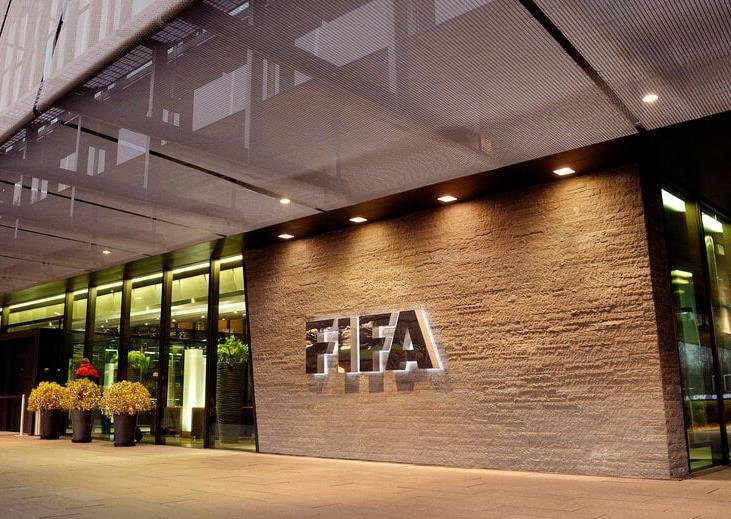On December 11, all 211 national members of FIFA will gather for an “Extraordinary Congress” to cast their votes on the host for the 2034 World Cup. The outcome seems almost predetermined with Saudi Arabia being the sole contender. However, the real story here is less about the game and more about the people behind the scenes.
Saudi Arabia has received a strikingly high score of 419.8 out of 500 in FIFA’s evaluation, which they proudly tout as “the highest ever score in FIFA World Cup history.” But what does this score really mean? Critics argue that the evaluation process is deeply flawed, overlooking significant human rights issues in the Kingdom. Migrant workers, who make up a staggering 13.4 million of Saudi Arabia’s population, are often subjected to harsh conditions while constructing the necessary infrastructure for such mega-events.
The Hidden Costs of Hosting the World Cup
While the glitz and glamour of the World Cup capture global attention, the darker side remains largely ignored. Migrant workers in Saudi Arabia face numerous challenges, including limited labor rights, inadequate living conditions, and little to no avenues for redress. These workers are the backbone of the infrastructure projects, building stadiums, roads, and other facilities essential for the tournament.
“Most of these workers come from countries where they seek better opportunities, but instead, they end up in exploitative situations,” says Human Rights Watch. The promise of economic gain for Saudi Arabia often comes at the expense of these vulnerable populations. The lack of labor unions and minimal press freedom exacerbate the plight of these workers, leaving them with few protections against abuse and exploitation.

Saudi Arabia’s Push for Global Recognition
Crown Prince Mohammed bin Salman has been leveraging sports as a means to reshape Saudi Arabia’s global image. Hosting the World Cup is seen as a strategic move to boost the Kingdom’s international standing and diversify its economy beyond oil. However, this ambition has not come without significant backlash.
“Sports should bring people together, not distract from ongoing human rights violations,” argues Lina Alami, a Middle East analyst. The high evaluation score awarded by FIFA seems to mask the systemic issues within Saudi Arabia, raising questions about the integrity of the organization’s decision-making process.
The Voices Left Out
One of the most troubling aspects of this situation is the lack of representation for those most affected by FIFA’s decisions. Saudi citizens, migrant workers, players, fans, and journalists have no say in the voting process. Their voices are drowned out by the bureaucratic machinery of FIFA, which prioritizes political and economic interests over human rights and ethical considerations.
“This is not just about football; it’s about who gets to be heard on the global stage,” says Jamal Hassan, a Saudi journalist. The decision to award Saudi Arabia the hosting rights without addressing these critical issues sends a troubling message about the priorities of international sports organizations.
Evaluating FIFA’s Role and Responsibility
FIFA’s role in selecting World Cup hosts has long been under scrutiny. The organization is often criticized for its opaque processes and susceptibility to corruption. The Saudi bid, with its impeccable evaluation score, brings these issues into sharp focus.
“How can FIFA justify awarding such a prestigious event to a country with such a poor human rights record?” questions Dr. Amina El-Sayed, a sports ethics professor. The discrepancy between the high evaluation score and the reality on the ground in Saudi Arabia highlights a significant gap in FIFA’s oversight mechanisms.
The Broader Impact on Global Sports
The decision to potentially host the World Cup in Saudi Arabia has broader implications for global sports. It raises concerns about the future direction of international tournaments and the ethical standards upheld by governing bodies.
“If we allow countries with questionable human rights records to host major events, we risk undermining the very values that sports stand for,” asserts Michael Thompson, a former FIFA official. The integrity of global sports could be at stake if these issues are not addressed adequately.
What Lies Ahead for the 2034 World Cup
As the voting day approaches, the international community watches closely. The final decision will not only determine the next host of the World Cup but also set a precedent for how future bids are evaluated and approved.
Saudi Arabia’s hosting could lead to increased scrutiny of FIFA’s processes and potentially spark calls for reform within the organization. It could also inspire other countries to push for greater accountability and transparency in how World Cup hosts are selected.
The Path Forward: Accountability and Reform
To prevent such controversies in the future, there is a pressing need for accountability and reform within FIFA. Ensuring that human rights and ethical considerations are integral to the evaluation process is crucial.
“FIFA must take a stand and prioritize human rights over scores and economic interests,” insists Sarah Ahmed, a human rights advocate. Implementing stricter evaluation criteria that consider the treatment of workers, press freedom, and political freedoms could help restore credibility to the organization.
Moreover, giving a platform to the voices of those most affected by these decisions is essential. Including input from migrant workers, local communities, and human rights organizations could lead to more balanced and fair outcomes.
